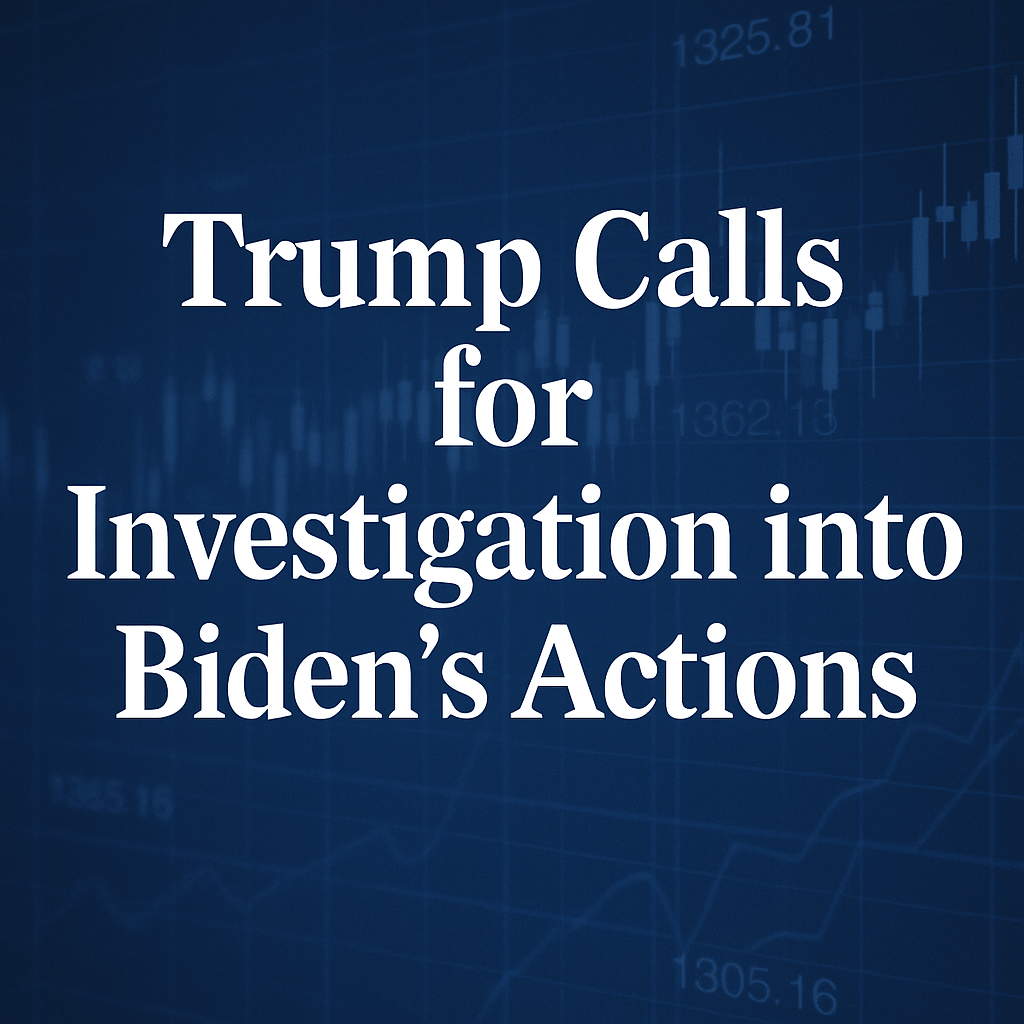Trump Calls for Investigation into Biden’s Actions

Former President Donald Trump has taken a decisive step in escalating his long-standing political rivalry with President Joe Biden. On Wednesday, Trump directed leaders within his administration to conduct an investigation into Biden’s actions during his presidency, alleging that aides have concealed what he refers to as Biden’s “cognitive decline.” This allegation raises significant questions about how executive authority has been exercised and the legitimacy of Biden’s usage of an autopen for signing critical documents.
The Context of the Directive
Trump’s order serves as a notable intensification of his strategy to challenge the decisions made by his political opponents. The use of the autopen, a device that mechanically reproduces a person’s signature, has been recognized by both Democratic and Republican administrations for decades. This device has facilitated the efficiency of signing numerous documents but is now under scrutiny as Trump aims to frame Biden’s presidency as uninformed regarding key executive decisions.
Biden’s Response: Affirmation of Authority
In response to the allegations, Biden issued a firm statement asserting, “I made the decisions during my presidency … Any suggestion that I didn’t is ridiculous and false.” This assertion is crucial, particularly as it underscores the constitutional authority vested in the presidency regarding executive orders, pardons, and proclamations—powers explicitly granted in Article II, Section 2 of the U.S. Constitution.
Legal Ramifications of an Investigation
While Trump’s directive indicates a significant focus on Biden’s presidency, the practical implications of such an investigation remain unclear. Trump’s administration has previously attempted to probe various adversaries, including Chris Krebs, a former cybersecurity official, and Miles Taylor, an ex-Department of Homeland Security official. However, such inquiries often meet legal challenges and skepticism regarding their motivations and validity.
The Role of the Justice Department
Trump has tasked Attorney General Pam Bondi and White House Counsel David Warrington with overseeing the investigation. The Justice Department’s long-established recognition of the autopen’s legality complicates Trump’s position, as he has yet to present substantiated evidence supporting his claims regarding Biden’s lack of awareness about decisions made during his presidency. In light of this, legal experts express skepticism about the likelihood of courtroom success for any claims questioning Biden’s actions.
The Legislative Landscape and Oversight Efforts
On the legislative side, House Oversight Chairman James Comer has launched an inquiry targeting five former Biden aides, asserting that they engaged in a “cover-up” that he alleges to be one of the greatest scandals in American history. Comer emphasizes the need for eyewitness testimonies from individuals like senior advisers Mike Donilon and Anita Dunn, and former chief of staff Ron Klain. Interviews are expected to help clarify the operational decisions within the Biden administration and the cognitive state of the president.
Potential Outcomes of the Inquiry
- Increased Political Polarization: The inquiry is likely to exacerbate existing partisan divisions, with Republicans pursuing their narrative vigorously and Democrats framing the effort as a distraction from substantive governance.
- Media and Public Reaction: Drawing attention from various media outlets, the inquiry combines elements of political drama and ongoing public discourse regarding leadership competency, particularly as Biden’s age becomes a consistent theme in electoral discussions.
- Implications for Future Policies: Depending on the findings or public perception generated by the inquiry, the investigations could influence upcoming legislative agendas or strengthen calls for policy transparency and accountability within governmental functions.
Historical Comparisons and Broader Implications
The scrutiny of the administration’s decision-making processes is reminiscent of past political investigations that have attempted to probe the boundaries of executive authority. The implications for Biden extend beyond the immediate inquiries; they touch on deeply-rooted issues of resilience in political discourse and the ability of the electorate to trust in leadership. Historical precedents suggest that such investigations often have lasting impacts on approval ratings, party cohesion, and electoral outcomes.
Conclusion
As the story evolves, the outcomes of Trump’s investigation directives and Comer’s testimonies could shape not only public perception of Biden’s presidency but also paint a broader picture of the integrity of executive authority in the United States. Legitimacy, accountability, and the mental acuity of leadership remain at the forefront of political discourse as both parties brace for the upcoming electoral battlegrounds.
“The American people deserve to know the truth,” stated Rep. Brandon Gill, casting a spotlight on the expectations for transparency within the Biden administration.
Source: fortune